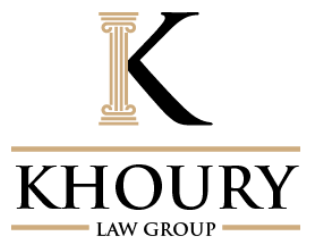How Do I Collect a Judgment After I Win a Civil Case?
Winning a civil lawsuit is a major victory, but unfortunately, the process doesn’t always end with the judge’s ruling. If the court awards you a monetary judgment, that doesn’t automatically mean the other party will write you a check. In many cases, collecting a judgment is its own legal process — and it can be just as complex as the lawsuit itself.
In this post, we’ll walk you through the steps and tools available to help you collect what you’re owed after a successful civil case.
Step 1: Understand Your Judgment
Once the court enters a judgment in your favor, it will specify:
- The amount owed
- Who owes it
- Any interest to be added
- Whether you’re awarded court costs or attorney’s fees
This judgment becomes a legal debt owed to you by the defendant (now called the “judgment debtor”).
Step 2: Wait Out the Appeal Period
Depending on your state, the judgment debtor has a certain number of days (often 30) to file an appeal. During this time, they may not be required to pay immediately. If they do file an appeal, collection may be delayed until the appeal is resolved.
Step 3: Record the Judgment (If Real Property Is Involved)
In many states, recording the judgment with the local county clerk where the debtor owns real estate creates a lien on that property. This means if they try to sell or refinance the property, you’ll be entitled to payment from the proceeds.
Step 4: Locate the Debtor’s Assets
You can’t collect money if you don’t know where it is. You may need to:
- Conduct a debtor’s exam (court-ordered questioning about income, assets, and bank accounts)
- Use public records to find property, vehicles, or business interests
- Hire a collection attorney or private investigator to help
Step 5: Enforce the Judgment
Once you identify assets, there are a few common enforcement tools available:
1. Wage Garnishment
You can ask the court to issue an order to garnish the debtor’s wages (a portion of their paycheck goes directly to you).
2. Bank Levy
You may be able to seize funds directly from the debtor’s bank account, assuming you know where they bank.
3. Property Lien
If the debtor owns real estate, a lien may already be in place. You can eventually force the sale of that property, in some cases, to collect your judgment.
4. Seizure of Personal Property
In rare cases, the court may allow you to seize and sell personal property, such as vehicles or valuable items.
What If the Debtor Still Won’t Pay?
If the debtor is truly insolvent or has no collectible assets, collection becomes difficult — sometimes impossible. However, judgments can be valid for many years (often 10–20 years, depending on the state) and can sometimes be renewed.
This means that even if someone can’t pay now, they might acquire assets or income in the future — and you’ll still have the right to collect.
Do I Need a Lawyer to Collect My Judgment?
While some collection methods can be handled on your own, many judgment creditors benefit from legal help. An attorney can:
- Help uncover hidden assets
- Navigate local court procedures
- Enforce the judgment efficiently
- Ensure you don’t violate collection laws
Final Thoughts
Winning your civil case is a huge step — but it’s only half the battle. Collecting a judgment can take time, strategy, and persistence. By understanding your rights and using the legal tools available, you can improve your chances of actually receiving the money you’re owed.
Need legal help? In California, navigating legal challenges, whether they involve personal injury, workers’ compensation, criminal defense or civil litigation, can be overwhelming. Khoury Law Group is here to provide the critical legal support you need. As a leading advocate for individuals facing legal battles, our experienced attorneys understand the complexities of the legal system and are committed to fighting for your best interests. With personalized legal strategies and compassionate support, we are dedicated to achieving the justice and compensation you deserve.
CONTACT US FOR HELP. Call us at (888) 354-6879 or fill out the form on our Contact page.





